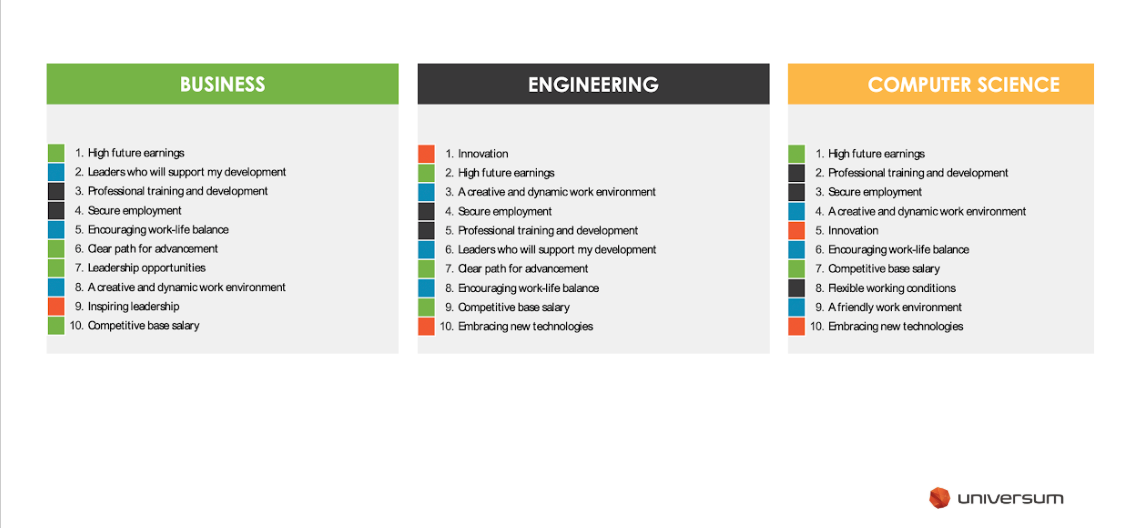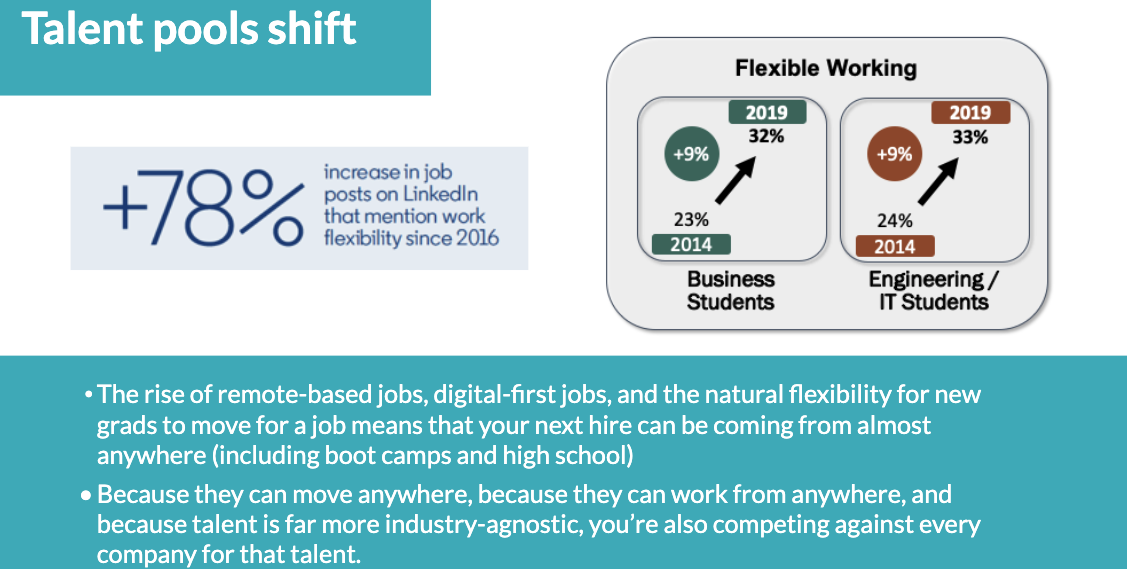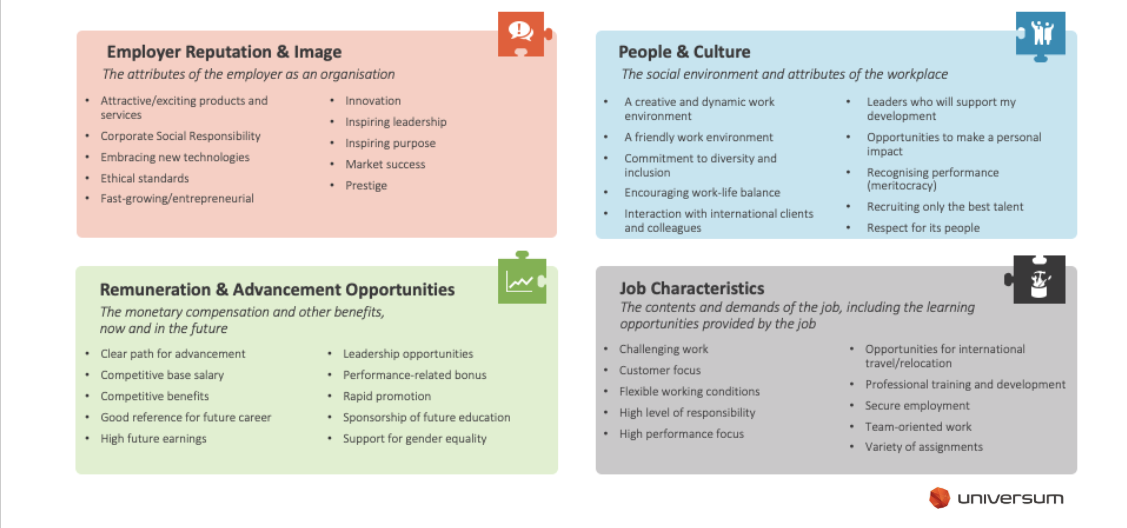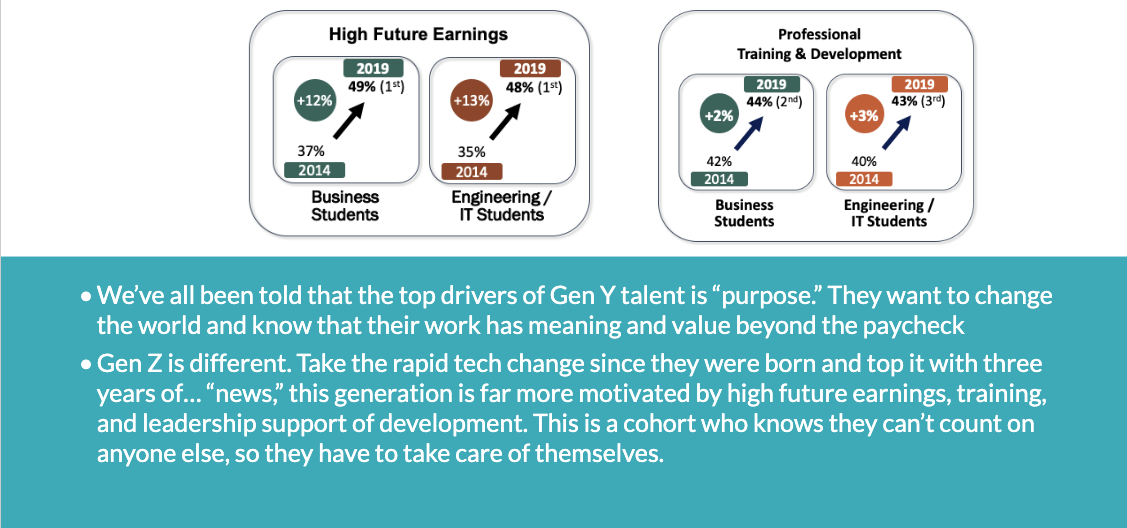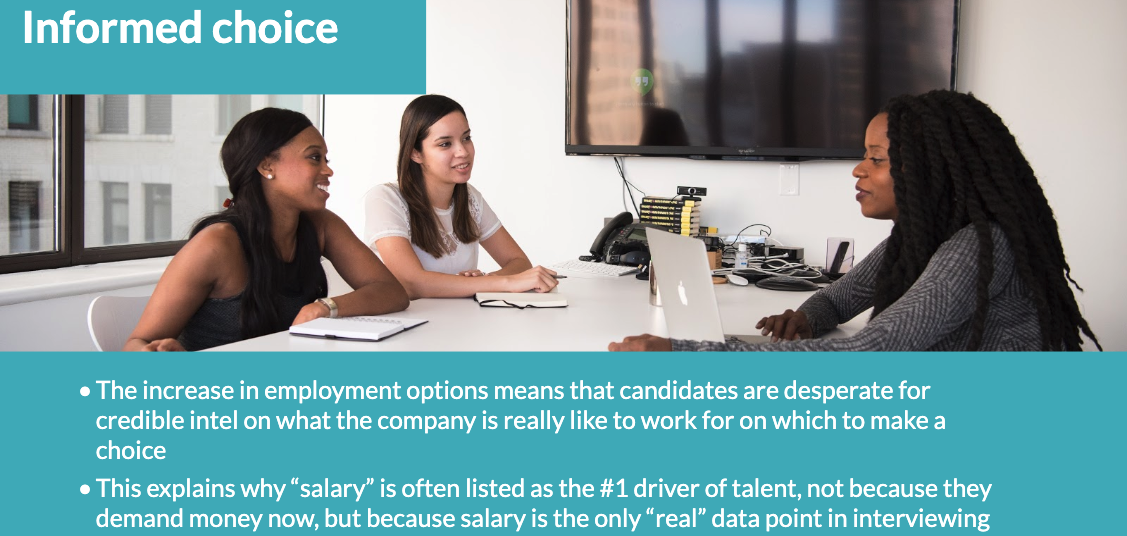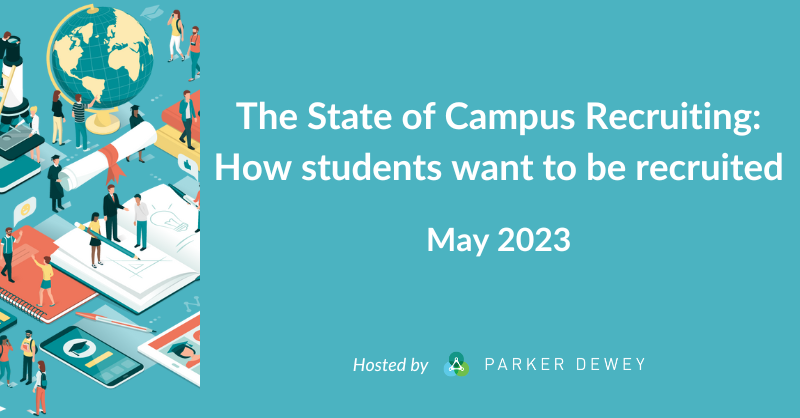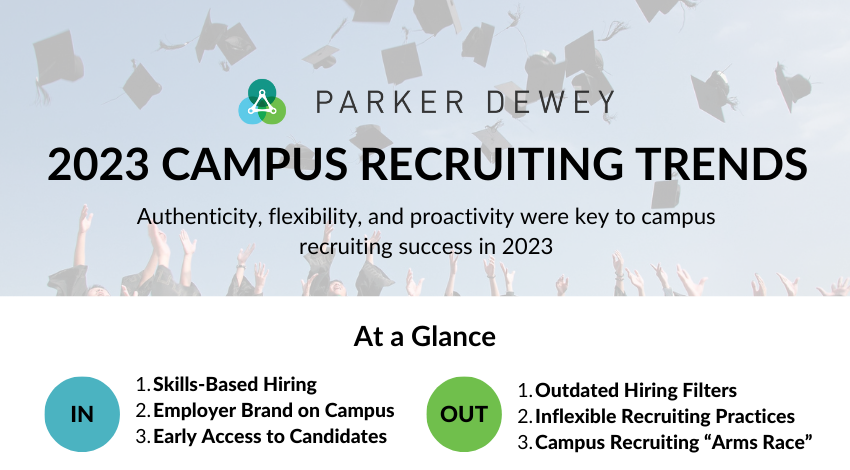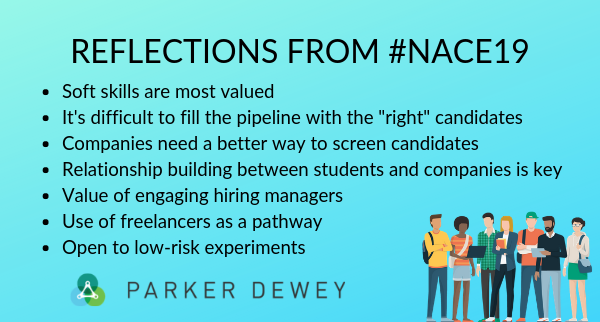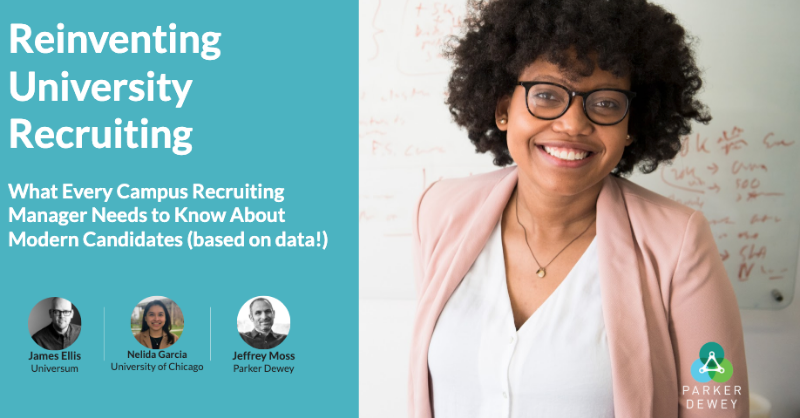
Reinventing University Recruiting
On February 27th, 2020, Jeffrey Moss, Founder and CEO of Parker Dewey, Nelida Garcia, Associate Director of Student Preparation at University of Chicago, and James Ellis, Director of Employer Brand at Universum delivered a webinar on reinventing university recruiting. During the webinar, the conversation focused on using data to understand today's college recruiting environment and understand what strategies are working, and which aren’t.
| TL;DR: check out the list of key takeaways (with actionable items) from this webinar. |
Although technologies have evolved, University Recruiting has not significantly changed during the past few decades. While companies have been using more progressive tactics, the majority of efforts for college recruitment have struggled to keep up with their audience.
In particular, the current generation of college students and recent grads have values that are often different than those expected when recruiting them. As a result, companies often miss opportunities to engage potential candidates, or do so in a way that does not focus on the aspects of the job that the student actually values.
Here’s a question asked to kick off the webinar; Do you know the answer?
What motivators are far more likely to drive interest in a role among Gen Z talent?
- The company is known for recruiting only the best talent
- The company is known as being fast-growing/entrepreneurial
- The company offers a high level of responsibility
- The company offers high level of stability
(Find out the answer by watching the webinar replay).
During the webinar, James shares data from Universum's massive study in 2019. Over 53,000 U.S. college students were surveyed to understand what companies they are most interested in applying to and why. The results show macro shifts in what talent is actually looking for, which companies they admire, and what drives them to engage with companies they are interested in.
The results first tell us the common thread of what today’s college students are looking for from their employers. James shares what talent prioritizes across three common industries, business, engineering, and computer science. Across industries, the top priorities are high future earnings, professional training and development, and secure employment.
James highlights a great example of a major talent pool shift with work flexibility. The rise of remote jobs, work from home adaptability, and the flexibility of new grads to move and work virtually anywhere can cause competition against every company for that same talent. While this represents a dramatic shift in the American workplace, savvy companies can view it as an opportunity for both parties. Recent graduates can find organizations that can offer the lifestyle they crave while companies can use workplace flexibility as a recruitment tactic for hiring recent graduates across the country without the expense of relocating them to their corporate headquarters.
This study by Universum also shows us that what talent says they want and what actually drives their decision to keep them at an organization can be quite different. Here’s a quick glance at 40 motivators that show why candidates choose their position within a company:
This generation knows that they can’t count on anyone else, so they strive to take care of themselves. Don’t underestimate the motivation that Gen Z talent has to secure high future earnings along with professional training and development.
This is quite a shift from being driven and motivated by just the ‘purpose’ of a brand like previous generations have been. James and Nelida both encourage university recruiters to be specific on how dedicated your company is to helping build your employees' careers. What does your company provide to the specific person you are recruiting? Note that this level of specificity and transparency of expectations will make you stand out.
Students are also making much more informed choices and are scouting for more information before committing to work at any company. They want to know what it’s really like to work for an organization if they decide to make that choice. Since Glassdoor stepped in, it has changed the recruiting game as many candidates search for credible intel into whether companies stick true to their offerings and their promises to employees.
As Jeffrey notes, social media has further complicated how students learn about companies. They are constantly being inundated with posts and pictures of their friends at work. This can cause a “grass is greener” issue and has made it difficult for employers to cut through the noise. So how can companies respond?
One solution is a comprehensive strategy on attracting, assessing, and nurturing candidates. Each element does not act independently, but needs to be tied together in an authentic way to work. (Watch the full webinar for a breakdown on each and how they come together).
The bottom line is that companies need to understand their own employer brand and be authentic to what they are offering. No matter how much you spend on ads, student lists, or fancy events, there is no faking the employee experience.
Many companies know how to focus on what they offer as rewards and benefits, but should be clear on professional training and development, future earning potential, and employment security. If you are stressing company philanthropy or company dog petting sessions, it may not resonate well with Gen Z.
Further data shows that on average, students use 5.9 different channels to find information about employers, and 84% use in-person channels such as career fairs. However, it can be difficult to measure the ROI of career fairs, so it’s hard to tell if they’re valuable for your efforts.
Nelida dives into some effective strategies that have been successful with events at the University of Chicago. Instead of companies just hosting the standard info session, they are hosting discussions on various career development topics as subject matter experts. Instead of attending career fairs a couple of times per year, these companies are also offering Micro-Internship opportunities so that they can access and assess future talent year-round.
The University of Chicago’s MicroMetcalf program was cited as a specific example of an employer engagement activity that has both provided opportunities for students while also helping employers identify future talent for their organizations.
Micro-Internships offer insight into what it's actually like to work with your team. This real work experience can avoid enticing candidates with the wrong pitch.
The issue of college-to-career transition is complicated and requires a multi-faceted approach that benefits students and employers. As the webinar demonstrated, a better understanding of the unique characteristics of today’s college students while also demonstrating a willingness to creatively embrace new recruitment strategies can help companies maintain a competitive edge.
If you’d like to learn about more events like this one, click here to subscribe to our newsletter.


